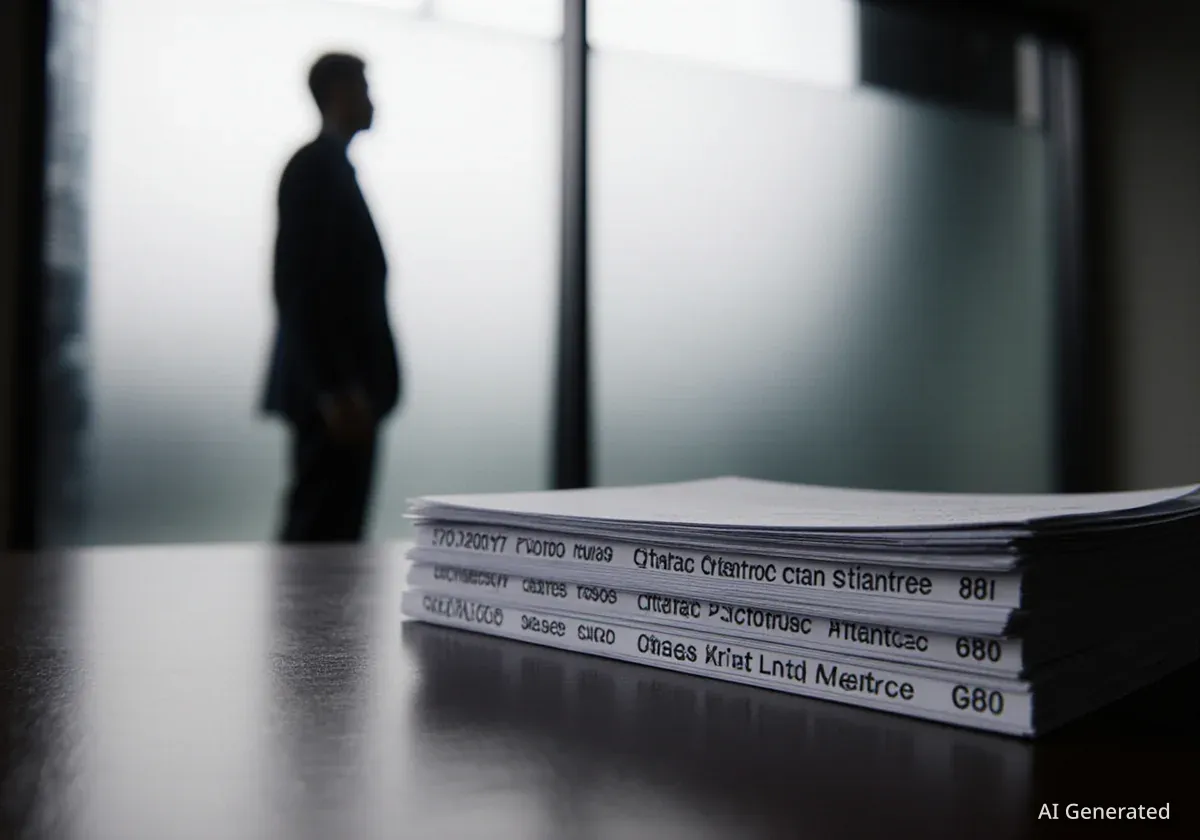Federal prosecutors have charged two real estate executives in separate cases with defrauding California's Homekey program, an initiative designed to create housing for individuals experiencing homelessness. The U.S. Department of Justice announced the charges, which involve allegations of misappropriating millions of dollars in state funds through fraudulent property transactions and personal expenditures.
Key Takeaways
- Two real estate executives, Steven Taylor and Cody Holmes, face federal charges in unrelated cases involving California's Homekey program.
- Steven Taylor is accused of fraudulently flipping a property for a $16 million profit using state and city funds intended for homeless housing.
- Cody Holmes, former CFO of a developer, allegedly diverted over $2 million in grant money for personal luxury purchases.
- The charges stem from a broader federal investigation into the potential misuse of public funds allocated for homelessness services in Los Angeles.
Federal Prosecutors Allege Widespread Misuse of Funds
The U.S. Department of Justice announced the charges on Thursday, signaling a significant development in the oversight of public funds. The cases target alleged schemes that exploited a state program created to address California's housing crisis.
Acting United States Attorney Bill Essayli described the charges as just the beginning of a larger effort. "Accountability for the misuse of billions of tax dollars intended to combat homeless starts today," Essayli stated in a public announcement. He emphasized the commitment to pursuing all leads and holding individuals accountable.
"The two criminal cases announced is only the tip of the iceberg and we intend to aggressively pursue all leads and hold anyone who broke any federal laws criminally liable," Essayli added during a news conference.
These actions follow the launch of a federal task force six months ago, specifically created to investigate potential fraud and corruption related to homelessness funds in the region.
The Cheviot Hills Property Scheme
In the first case, prosecutors charged Steven Taylor, 44, with seven counts of bank fraud, one count of aggravated identity theft, and one count of money laundering. The charges are connected to a property in the Cheviot Hills neighborhood of Los Angeles.
According to the indictment, Taylor purchased the property for $11.2 million. He allegedly secured financing for the purchase by submitting fraudulent bank statements to the lender and misrepresenting his intentions, claiming he planned to renovate and occupy the home himself.
What is a Double Escrow?
A double escrow, or simultaneous closing, involves two separate transactions on the same property closing on the same day. While not illegal, it can be used to obscure the details of a rapid resale, particularly the significant price increase, from parties in the initial transaction, such as the original lender.
However, prosecutors allege that before the purchase was even complete, Taylor had already arranged to sell the same property to the Weingart Center Association, a nonprofit housing developer. The sale price to the nonprofit was $27.3 million, funded by the state's Homekey initiative and city funds.
The transaction was allegedly structured as a "double escrow," which concealed the immediate resale and the approximately $16 million profit from the original lender. Federal authorities have indicated their investigation is ongoing to determine what Weingart and city officials knew about Taylor's actions.
Alleged Misuse of Funds at Shangri-La Industries
The second case involves Cody Holmes, 31, the former Chief Financial Officer of affordable housing developer Shangri-La Industries LLC. Holmes was arrested Thursday morning in connection with a different Homekey-funded project.
Shangri-La received $25.9 million in Homekey grant money to convert a building in Thousand Oaks into housing for the homeless. Prosecutors claim that Holmes and the company submitted falsified balance sheets to the state, significantly overstating the company's available cash to qualify for the grant.
Timeline of Alleged Transfers
- November - December 2022: Over $2.2 million transferred from a Shangri-La account to an account controlled by Holmes.
- November 2022 - May 2023: More than $2 million in grant funds allegedly used to pay for personal expenses on American Express cards.
Once the funds were disbursed, Holmes allegedly transferred large sums to his personal accounts. The indictment states that more than $2.2 million was moved from a Shangri-La account to one controlled by Holmes in late 2022. Subsequently, over $2 million was allegedly used to pay for personal expenses, including purchases at luxury retailers.
A Pattern of Troubled Projects
Shangri-La Industries has faced scrutiny for some time. The company's efforts to convert motels into housing have been troubled, and it has been the subject of extensive reporting. In January 2024, the California Attorney General filed a civil lawsuit against the company.
The civil suit seeks the return of more than $100 million in Project Homekey funds. It alleges that Shangri-La took out loans on multiple state-funded properties without state approval and failed to record the required affordability restrictions, which are meant to ensure the properties serve low-income residents long-term.
Broader Context of Homelessness Spending in Los Angeles
These federal charges emerge amid growing public concern over the effectiveness of the massive financial investment aimed at solving the homelessness crisis in Los Angeles County. Despite billions spent, visible results have been slow to materialize for many residents.
According to the most recent annual count, an estimated 72,308 people were experiencing homelessness across L.A. County, a figure that represents a 4% decrease from the previous year. Within the city of Los Angeles, the number was 43,699.
The oversight of these funds has been a point of contention. Earlier this year, the L.A. County Board of Supervisors voted to create its own homeless department, redirecting county funds away from the Los Angeles Homeless Services Authority (LAHSA). The decision followed critical audits that found LAHSA lacked adequate financial controls to prevent waste and fraud, and could not ensure its contractors were providing the services they were paid for.
The federal investigation and subsequent charges against Taylor and Holmes represent a new level of scrutiny, suggesting that authorities are now focusing on potential criminal activity within the system designed to help the region's most vulnerable residents.





